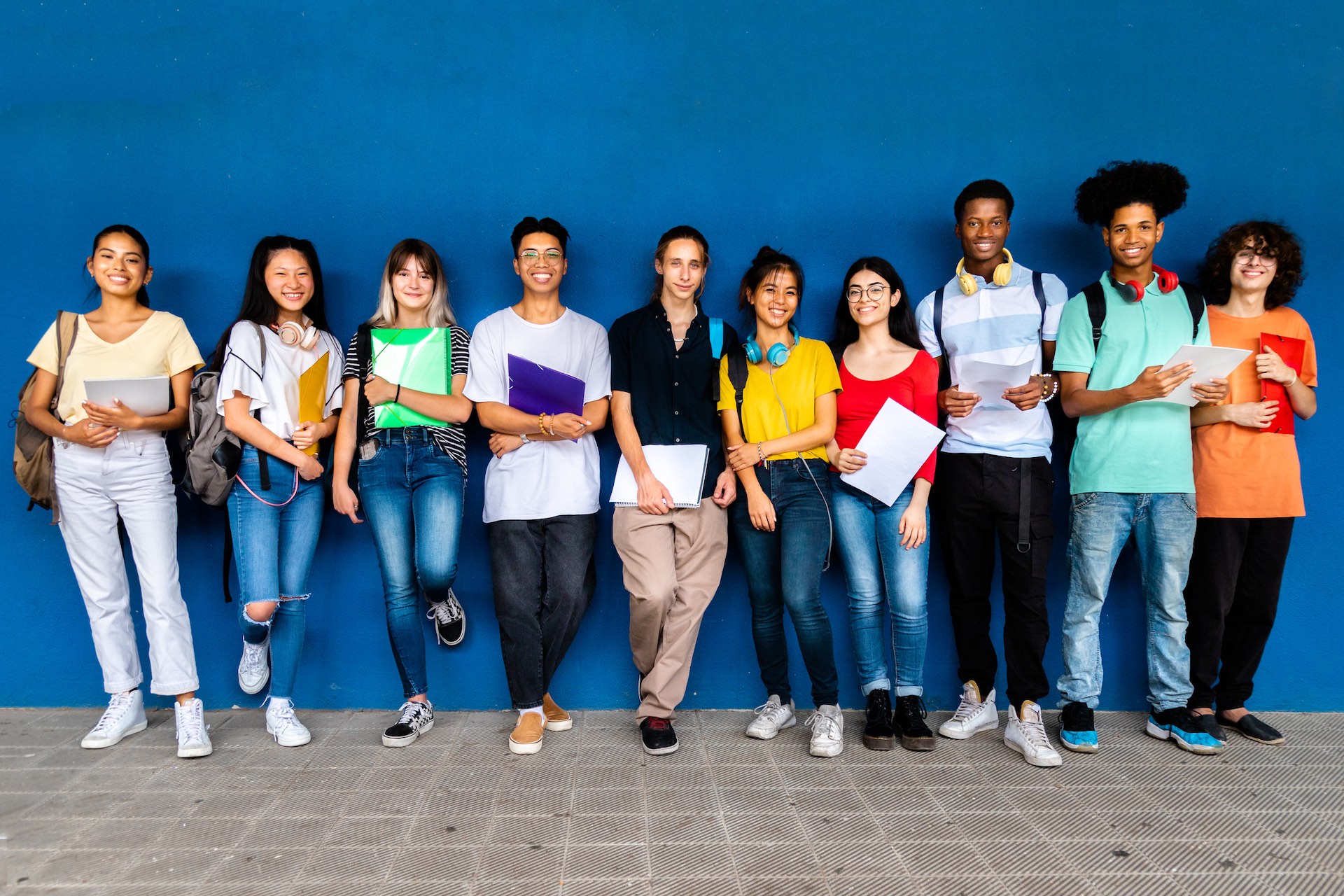High school tutoring is a critical support system that can significantly improve a student’s academic journey. As parents, understanding the various facets of high school tutoring and its potential benefits is essential for ensuring the success of teens.
This comprehensive high school tutoring guide is designed to provide a detailed overview. This guide covers everything from the advantages of tutoring to common subjects, finding the right tutor, recognizing signs that your teen might need tutoring, exploring cognitive learning, and understanding its benefits for high school students.
- Does tutoring help high school students?
- Common subjects for high school tutoring
- How to find a high school tutor?
- Qualities to look for in a high school tutor
- Signs your teen needs tutoring
- What is cognitive learning?
- Why does cognitive learning help high school students?
How Can High School Tutoring Benefit My Teen?
Tutoring during high school provides many advantages, including subject reinforcement and practice, improved subject understanding, and the invaluable opportunity for individualized attention, which is often scarce in crowded classrooms. Whether your teen is struggling to keep up or excelling in their studies, tutoring can serve as a motivation for their academic triumphs, even during school breaks.
Six benefits of high school tutoring:
- Personalized Attention: Tutoring offers personalized, one-on-one instruction tailored to your teen’s unique learning style, pace, and interests. This personalized approach fosters a deeper comprehension and active participation in their studies.
- Targeted Remediation: Tutors can help to identify specific subjects or areas where a student may encounter challenges. They can then provide focused assistance to fill knowledge gaps, leading to overall improvement in performance.
- Confidence Building: High school students who are in tutoring often experience an increase in their confidence. Tutoring boosts student’s confidence and provides positive reinforcement, which cultivates a sense of achievement.
- Enhanced Study Skills: Tutoring not only covers subject-specific content but also helps students with essential study skills. Students learn organizational techniques, time management strategies, and effective note-taking methods, laying a strong groundwork for future academic endeavours.
- Enrichment Opportunities: Tutoring can extend beyond help for academically advanced students. Tutors introduce complex concepts, offer advanced materials, and nurture critical thinking abilities, sparking a passion for learning.
- Individual Progress Tracking: Tutors closely monitor your teen’s progress. They offer regular feedback and assessments. This allows for continuous refinement of the tutoring approach, ensuring optimal outcomes and sustained development.
Investing in high school tutoring can help your teen with the skills and knowledge necessary to excel academically, paving the way for a bright future.
Learn more about what the Advantage High School Success Program is all about.
Common Subjects for High School Tutoring

High school students often find one particular subject more difficult than others. English, math, and science tend to be the most challenging for students. Here are some insights into the specific benefits of tutoring for three common subjects that many students struggle with in high school.
High School English Tutoring
English tutoring extends beyond grammar and literature. It focuses on enhancing language skills, improving writing proficiency, and fostering critical analysis. Learn more about the positive impacts of English tutoring here.
High School Math Tutoring
Mathematics can be a stumbling block for many high school students. Math tutoring, however, offers a structured approach to building a strong foundation, overcoming challenges, and excelling in math courses. Explore the benefits of math tutoring here.
High School Science Tutoring
Science subjects often involve complex concepts that can be challenging to grasp. Science tutoring helps students navigate these challenges, ensuring a solid understanding of scientific principles and success in their coursework. Discover the advantages of science tutoring here.
Qualities to Look for in a High School Tutor
When searching for a tutor for high school students, it’s important to find a place with tutors with the following attributes:
Establishing Rapport and Professionalism
Find a tutor who will be able to build a strong connection with your child. They should approach their role professionally, maintaining clear communication while being empathic and professional.
Bringing Vibrancy and Passion
An effective high school tutor should inject each session with vibrancy and passion. Their enthusiasm for the subject matter should ignite the student’s interest, making the learning experience fun and enjoyable.
Being Compassionate and Supportive
A compassionate and supportive tutor will create a nurturing learning environment. They should genuinely care about the student’s progress, well-being, and development. This will foster trust and encourage students to do their best.
Flexibility and Adaptability
High school students have diverse learning styles. A tutor who can adjust their teaching methods and approaches to accommodate various learning styles is invaluable. Tutors should also be flexible in scheduling sessions and adaptable based on the student’s progress.
Respectful and Empathetic
A good tutor empathizes with students’ challenges. They should be patient, empathic, and able to explain concepts to suit the student’s comprehension level. Mutual respect between the tutor and student is crucial for effective learning.
When choosing a high school tutor, consider these qualities along with their qualifications, experience, and subject expertise. It is paramount to find a tutor who can aid with their academics and cultivate a positive, supportive learning atmosphere for the student’s overall development.
5 Signs Your High Schooler Could Benefit from Tutoring

Navigating the educational system for a high school student can be tricky. Sometimes, students encounter hurdles that hinder their progress. It’s important to recognize the signals indicating that your child may require tutoring. Catching these signs early can be pivotal in steering them back towards success. Here are five indicators that might suggest your high schooler could benefit from tutoring.
1. Declining Academic Performance
If your high schooler’s grades keep dropping, it could mean they’re struggling. Keep an eye on certain subjects, such as math, English, and science, as these are the classes that most students struggle with. If you notice that their grades have been slipping, it’s time to interject with a tutor.
2. Avoidance of Homework or Resistance to School
When students avoid homework or don’t want to go to school, it might mean they find things hard and need help. This avoidance could result from inadequacy or frustration due to difficulties understanding the material.
3. Inconsistent Homework Patterns
Watch as your high school student does their homework. Do you know of a shift in the amount of time they spend on homework, or do you notice them avoiding it altogether? Homework avoidance or rushing through homework can be a sign that a student is struggling in class.
4. Challenges in Understanding or Recalling Concepts
Difficulty in understanding new ideas or retaining previously learned information could hinder a student’s academic progress. Trouble understanding concepts or retaining information is one of the biggest signs of needing extra help.
5. Lack of Organization in Schoolwork
A lack of organization in managing school assignments, such as misplaced papers, missed deadlines, or challenges in prioritizing tasks, can impact a student’s academic performance. Learning good organization and study habits is important for doing well in high school and later in life.
By identifying these signs early on, you can provide your high school students with life-long academic success by seeking out a tutoring program. High school tutoring offers personalized attention, reinforces foundational knowledge, and fosters effective learning strategies. Remember, every student learns at their own pace, and seeking support is a proactive step towards unlocking their full potential.
Learn more about High School tutoring programs.
Exploring Cognitive Learning in High School
Cognitive learning is a powerful education method for high schoolers, helping students use their minds better. It’s a dynamic, constructive, and lasting approach that GradePower Learning uses. Our cognitive learning approach promotes active learning and boosts accessibility, critical thinking, and memory retention.
Cognitive learning is more than memorization or repetition—it prioritizes genuine understanding and equipping students with the tools to become better learners.
Some of our key cognitive learning strategies for high school students include:
- Encouraging students to reflect on their experiences
- Guiding students in discovering solutions to challenges
- Facilitating debates on the subjects being taught
- Helping students explore and understand the interconnectedness of ideas
- Prompting students to justify and articulate their reasoning
- Utilizing visual aids to enhance student comprehension and memory retention
Cognitive learning in high school tutoring aims to empower students with both knowledge and the cognitive skills necessary to become effective learners throughout their academic journey.
How Does Cognitive Learning Help High School Students?
Cognitive learning is a pivotal tool for high school students. It ensures that knowledge isn’t just memorized momentarily but that there is a deep comprehension. By adopting this approach to learning, high school students can achieve a long-lasting and deep understanding of concepts across various subjects such as mathematics, English, science, and even French classes.
Cognitive learning serves as the defining factor between adept and average learners. When cognitive skills are lacking, students may find it challenging to integrate new information as it’s presented to them.
It’s important to recognize that learning new knowledge is fundamental to successful education, underscoring the significance of developing cognitive skills.
Cognitive learning helps by:
- Identifying high school students’ preferred learning styles, whether they lean towards visual, auditory, kinesthetic, or other learning modalities.
- Guiding students to approach learning from a broader perspective and enabling them to understand how individual concepts interconnect to form larger ones.
- Assisting students in effectively and efficiently applying newly acquired knowledge, facilitating practical implementation.
Incorporating cognitive learning methodologies into high school education empowers students to excel academically. It also cultivates essential cognitive skills that will serve as a robust foundation for their future educational pursuits.
Ready to put GradePower Learning to working helping your high school teen? Enroll now







